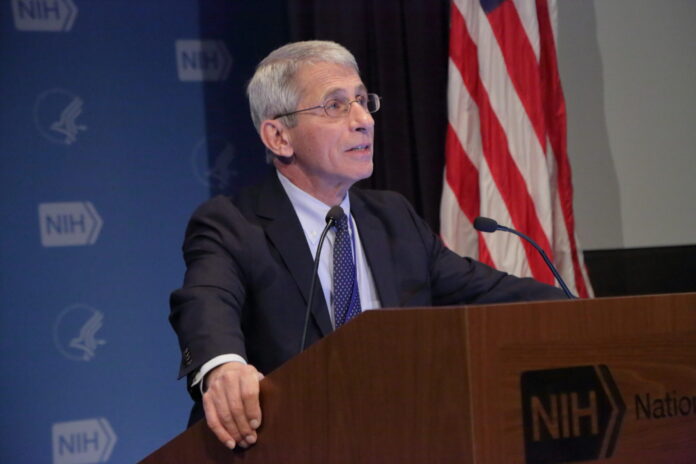Cases of Covid-19, RSV, and the Flu are all rising across the country. While some predicted Covid would become seasonal, RSV and Flu cases are rising quicker and earlier than many expected. Hospitalizations from both RSV and the Flu are also the highest they’ve been in a decade. Together, this wave of illness has been named the “tridemic.”
As we learned over the past two years, when America has a public health concern, Dr. Anthony Fauci answers questions while scaring and confusing everyone.
In a recent Meet the Press interview, Dr. Fauci informed us that we are still in a Covid-19 pandemic, that politicians have politicized the pandemic, and that schools could close again. Disappointed by our current state of public health, Dr. Fauci also stated, “Everybody deserves to have the safety of good public health, and that’s not happening.” Frustrations aside, Dr. Fauci plans to resign from all his governmental positions this December.
Regardless of anyone’s opinion of the man, he has become a legendary figure. He’s had a children’s book, a documentary, adorning yard signs, and clothes to “flaunt the Fauci” made in appreciation. Consequently, who replaces him has become an often-asked question.
Some contend nobody could wear all of Dr. Fauci’s hats successfully, and it will take a team to replace him. Others fear the polarized political environment will stop talented candidates from wanting the job. Whoever fills his shoes will likely have to be a highly accomplished scientist, a well-respected physician, and have extensive public sector experience.
Who will replace Dr. Fauci is a vitally important question for politicians and health policymakers. And that’s deeply concerning.
Beyond his fame and eye-popping salary, Dr. Fauci leads a $6.3 billion research organization, oversaw a staff of 5,300 government officials, and oversaw research efforts in over 100 countries as Director of the National Institute of Allergy and Infectious Diseases alone. He also provided direct guidance on medical and health policy matters to the President as Chief Medical Officer and as part of the Whitehouse Covid-19 Response Team.
But Dr. Fauci’s successor will have considerably more influence and power than this list suggests.
President Trump and President Biden signed considerably more executive orders than previous Presidents, making the Chief Medical Officer highly influential. The legacy of Operation Warp Speed allows high-ranking government officials to fund and provide favors to vaccine producers. Many states and cities can still enact rent moratoriums and lockdown measures if motivated by federal suggestions. The Department of Health and Human Services still forbids other subordinate agencies from passing rules internally. By extending the Covid-19 public health emergency, the US government continues to provide considerable funds to public health bureaucracies, expanding their regulatory scope and power.
The Covid-19 pandemic brought Dr. Fauci considerable recognition and considerable power. Both will follow his successor, which poses the potential for substantial harm as the tridemic and future public health concerns surface. Many who read The Beacon will be happy to see Dr. Fauci go. Sadly, the power of his position from government growth during the pandemic will remain long after he leaves.
